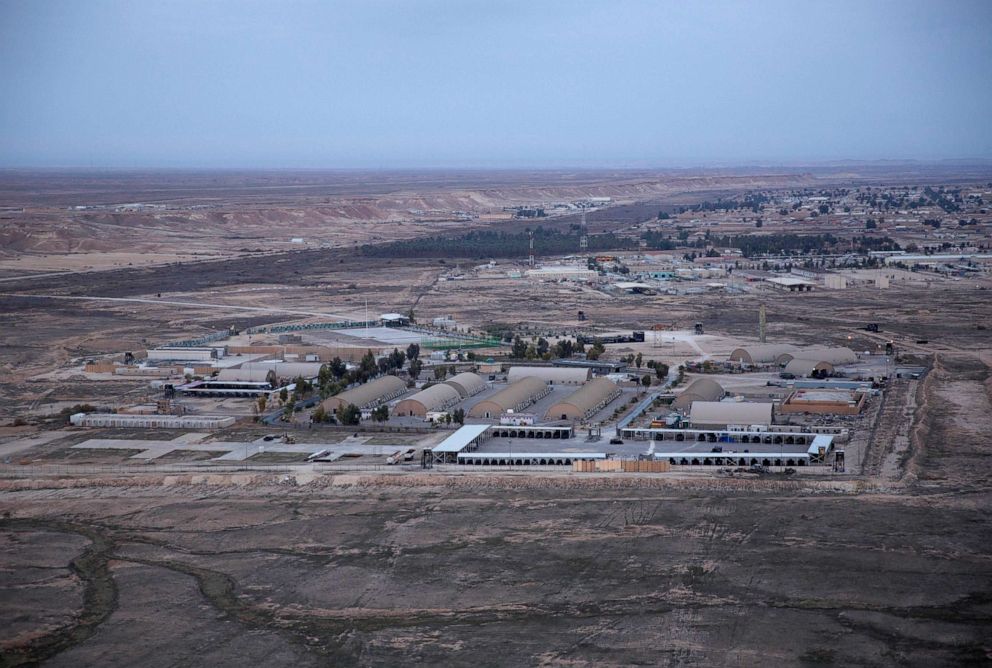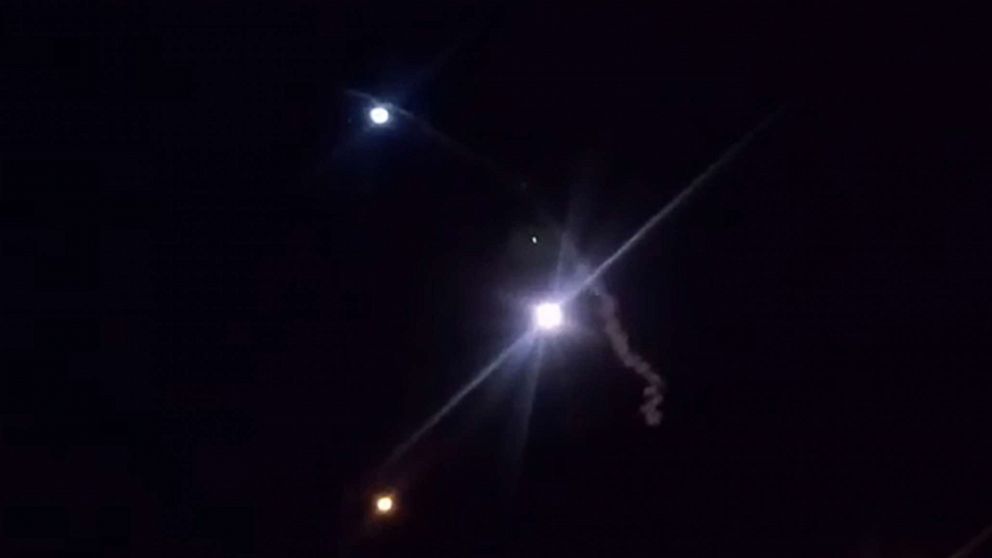Iran fired more than 20 missiles at US targets in Iraq: What we know about the attack
No American, Iraqi or coalition forces were killed in the attacks.
The U.S. now believes that Iran launched between 20 and 24 ballistic missiles on Tuesday night at two military facilities in Iraq that house U.S. troops, according to a U.S. official.
The official told ABC News that Iran had fired between 20 and 24 ballistic missiles at two U.S. military facilities at Al Asad airbase in western Iraq and Irbil in northern Iraq. Fifteen of the missiles impacted at Al Asad with a much smaller number impacting near Irbil.
Defense Secretary Mark Esper and Chairman of the Joint Chiefs of Staff Gen. Mark Milley told reporters on Wednesday afternoon that 16 ballistic missiles were fired from three locations inside Iran -- 11 at Al Asad Air Base and one near Irbil, with the remaining four missiles failing. It was not immediately clear why there was a discrepancy between the number of missiles launched.
While no American, Iraqi or coalition forces were killed in the attacks, Milley said the missiles were "intended to cause structural damage, destroy vehicles and equipment and aircraft and to kill personnel."

In a speech on Wednesday, President Donald Trump credited the lack of casualties in part to "precautions taken" and "an early warning system that worked very well" -- an assessment Esper and Milley agreed with.
Esper described the damage to Al Asad as "tentage, taxi ways, the parking lot" and a helicopter, some of which was visible in new satellite imagery released by Planet Labs on Wednesday.
"Nothing that I would describe as major at least as I know it at this point in time," the secretary said of the damage assessment.
Two U.S. officials said the Iranian missiles were a combination of short- and medium-range ballistic missiles, however Esper, Milley, and a senior State Department official said they were assessed to be short-range.

A small number of missiles also landed in the vicinity of Taji though it was unclear if the Iranians were targeting a base there known as Camp Taji or if they impacted there because of malfunctions, according to a U.S. official.
A second U.S. official said there are no indications that the U.S. attempted to intercept any of the missiles using air defense systems. The missiles were fired from a mix of mobile and non-mobile launchers and were in the air between five and 10 minutes, the first official added.
In addition to the early warning system, Milley said bases have sirens, bunkers, jersey barriers, "places to go hide," "various levels of protective gear" and scatter plans.
He said the fact that there were no casualties "has more to do with defense techniques that forces used as opposed to intent."
While the president and Pentagon wouldn't elaborate further on that early warning system, the U.S. uses satellites to monitor missiles launches from a number of adversaries around the globe. The satellites, known as the Space Based Infrared Systems (SBIRS), use infrared technology to scan landmasses for missile launches that could pose a threat to the U.S. homeland or American personnel overseas.
Within seconds, the sensors can pick up the heat signature from a missile launch and begin tracking a missile's trajectory. It's possible that data was passed to military commanders in Iraq who would have ordered personnel to shelter.
Sources told ABC News on Tuesday that U.S. troops were in bunkers at the time of the attack -- a sign that there was enough of a warning to alert them of possible danger.
A U.S. official would not confirm if SBIRS was the early warning system that the president credited, but confirmed that U.S. "internal warnings guided our reactions." The official indicated there was additional information that American facilities in Iraq were in danger but declined to provide specifics.
"The actions we took ahead of time saved American lives," the official said.
There could have been a number of other reasons American forces -- who were already at heightened state of alert -- were safely postured for the attack.
The Iraqi Prime Minister's office told ABC News that Iran provided the Iraqi government with advanced notice of the imminent attack more than hour before it occurred without providing specifics. It's possible the Iraqis passed that information to their U.S. military partners on the ground, but the prime minister's office declined to say. U.S. officials could also not confirm on Wednesday, with one saying the internal warnings were what drove the American safety posture.
ABC News' Ian Pannell contributed to this report from Irbil, Iraq, and Conor Finnegan contributed from the State Department in Washington.




